| Ms Erika Gutierrez, Artificial Intelligence and Mapping Specialist, UNOSAT
|
|
Ms Margherita Philipp, Data Scientist, EconAI research group, Fundació d'Economia Analítica (FEA)
| Margherita Philipp is a data scientist at EconAI, a research group based in Barcelona. She graduated with an MSc in Data Science from the Barcelona School of Economics (BSE) where she wrote her thesis on predicting conflict with the help of text-based data. She is currently exploring ways of nowcasting and forecasting institutional disruption and electoral violence. She has a background in philosophy, politics, and economics and has worked as a monitoring and evaluation consultant on a wide range of projects in the UK and Sub-Saharan Africa.
|
Mr Matteo Peduto, MIT Earth Intelligence Lab
|
|
| Ms Esraa Elgadi, Project Manager, Resurgence
| Trained in architecture (University of Khartoum) and project management (Ahfad University for Women), Esraa specialises in disaster risk reduction (DRR), climate resilience, and community-led adaptation. She served as Sudan’s Transport Sector Lead for the 2020 Post-Disaster Needs Assessment (World Bank/UNDP) and led a heritage-based, community-driven climate resilience research project on Tuti Island, Sudan (2022-23). Esraa currently manages the DARAJA Sudan Emergency Forecasting and Early Warning Service program, which delivers actionable weather forecasts to vulnerable and conflict-affected communities - empowering 48 million people in Sudan, including farmers and internally displaced persons (IDPs), to navigate extreme weather and compound crises.
|
Ms Omnia Shawkat, Founder, Andariya
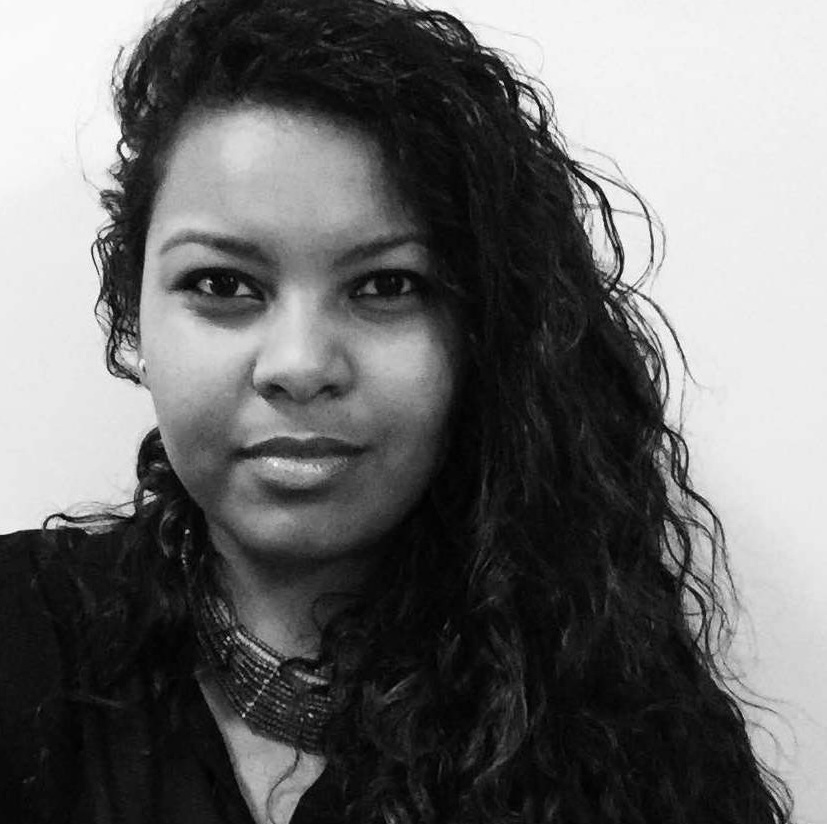
| Ms Omnia Abbas Shawkat is the founder of Andariya, with 17+ years of experience leading environmental, cultural and humanitarian projects and platforms across the East and Horn of Africa, the MENA region, and the U.S. She has established cultural, environmental and humanitarian digital strategies and platforms, integrating AI tools for content production, analysis and dissemination.
|
Ms Dilupa Nanayakkara, Communications and Marketing Lead, Resurgence
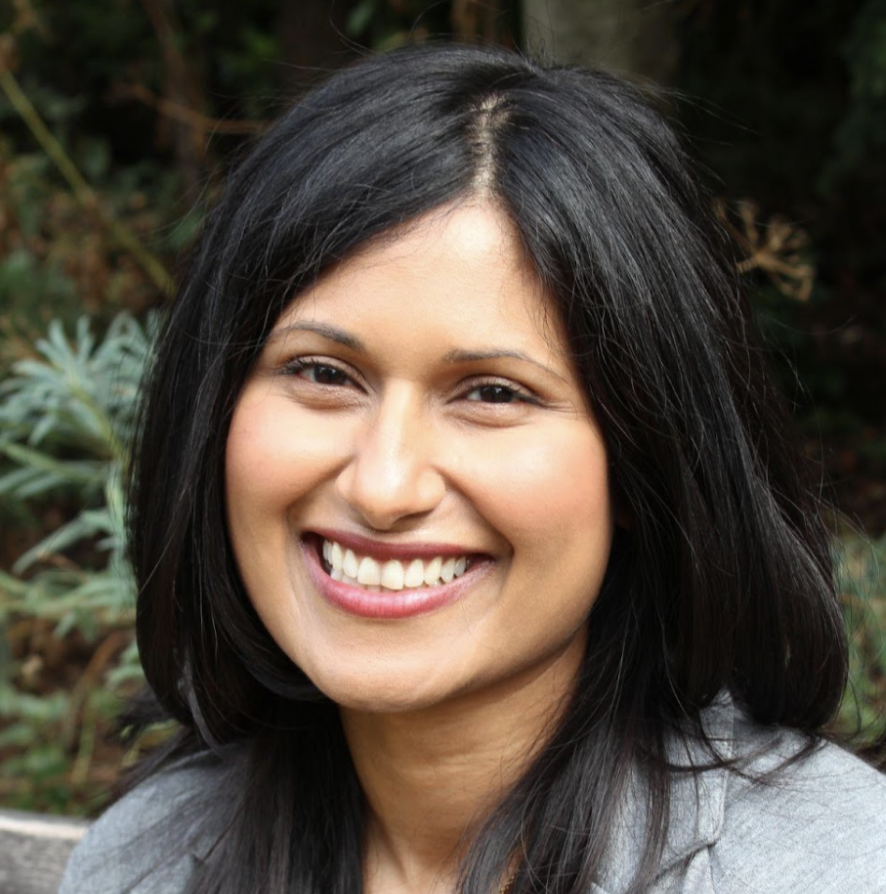
| Dilupa is a strategic communications and marketing leader with over 20 years of experience across global media, climate resilience, and international development. With a background that includes senior roles at Bauer Media and News UK, she has been involved in high-impact campaigns for top-tier brands such as P&G, Coca-Cola, and Unilever. Now focused on climate action, she serves as Communications and Marketing Lead at Resurgence, where she has helped elevate the award-winning DARAJA early warning initiative. Her work spans multimedia storytelling, global conference engagement (COP26–COP29), and co-authorship for climate resilience publications including for the Global Center on Adaptation.
At Resurgence, Dilupa has co-produced over 15 climate-focused videos and digital campaigns that have boosted global engagement and helped secure international recognition, including the 2024 World Habitat Award. She brings a combination of corporate strategy and grassroots impact, blending data-driven marketing, creative storytelling, and stakeholder collaboration.
|
Mr Scott Williams, Disaster Risk Management Expert & Resurgence Board Member
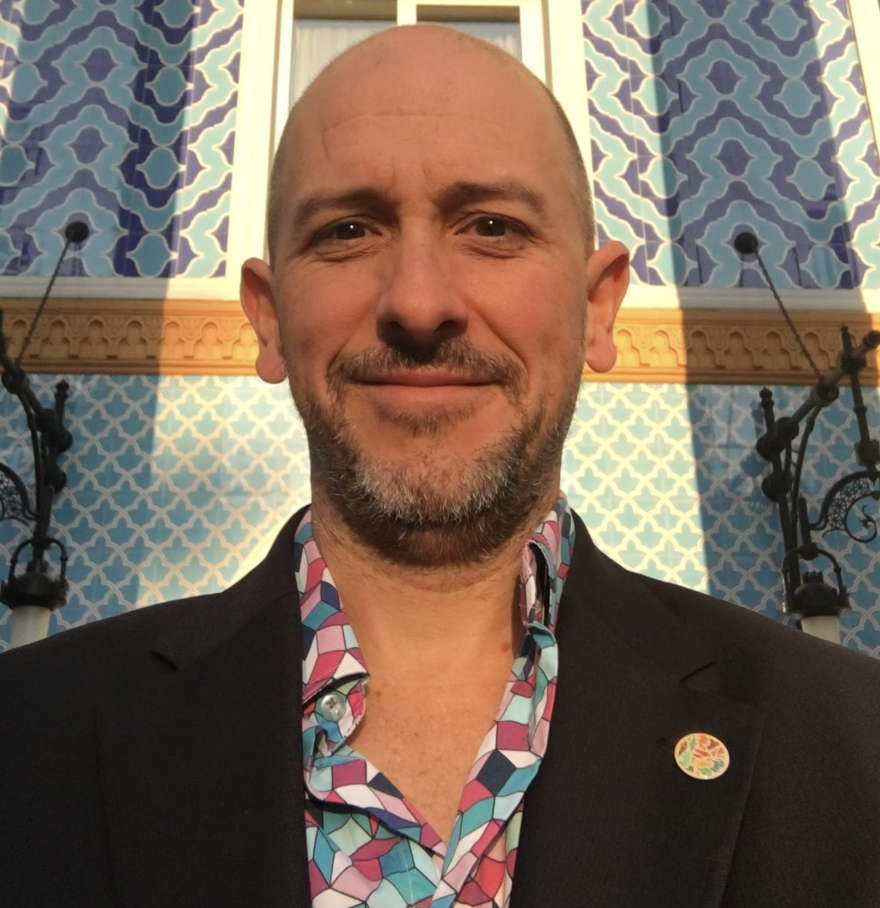
| Scott is a seasoned expert in disaster risk management and a passionate advocate for systemic change. A runner and poet at heart, Scott brings a unique blend of analytical rigor and creative insight to his work, often focused on fostering mutual learning and opening up spaces for transformative thinking.
He serves as an advisor to a range of global initiatives and institutions, including the United Nations Development Programme (UNDP) and the UN Office for Disaster Risk Reduction (UNDRR). His current advisory roles span the High-Level Dialogue on Energy, the High-Level Initiative on Financing for Development in the Era of COVID-19 and Beyond, the G20 Sustainable Finance Study Group, and the UN’s Global Risk Assessment Framework (GRAF). He also contributes to the Global Assessment Report on Disaster Risk Reduction (GAR), helping to deepen understanding of the systemic nature of risk in a rapidly changing world.
Previously, Scott spent two decades at PwC, where he held leadership roles including Director of the Disaster Risk Management Practice, Sustainability and Climate Change Practice Leader for PwC Japan, and member of PwC’s Global Sustainability Governance Board.
|
| Dr Andreas Vallgren, Co-founder and Chief Science Officer, Ignitia
| Dr Andreas Vallgren is a Co-founder and Chief Science Officer at Ignitia, where he has led scientific R&D since 2011. His work focuses on developing cutting-edge innovations to improve climate resilience for some of the world’s most vulnerable populations. Under his leadership, Ignitia has closed the performance gap of weather forecasting in regions where traditional global models underperform, and has enabled real-time extreme weather alerts to reach even remote rural communities — boosting agricultural outcomes and decision-making in the process.
Dr Vallgren holds a PhD in Fluid Mechanics from the Royal Institute of Technology (KTH) in Stockholm. He also earned a Master of Science in Meteorology from Uppsala University, and a Master’s in Space Engineering from Luleå University of Technology, with part of his studies completed at Monash University in Australia. Additionally, he holds a graduate certificate in Applied Science from the University of South Australia through the International Space University (ISU) Summer Session Program. During his doctoral years, he was also a frequent weather presenter on Swedish national television (SVT).
|
Ms Theresa Fehle, Strategic Partnership Manager, Ignitia
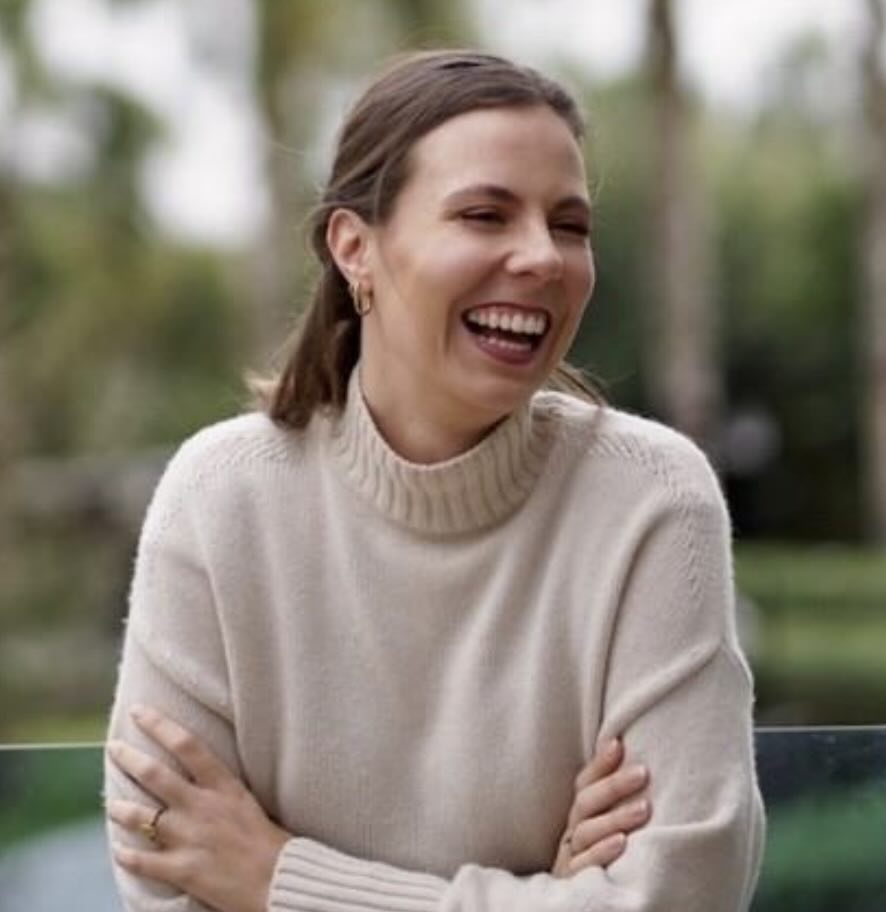
| Ms Theresa Fehle is Chief of Staff at Ignitia, where she drives strategic growth, partnerships, and impact initiatives to make accurate weather data accessible to underserved communities across emerging markets. With European roots and a global footprint spanning six countries, Theresa combines her expertise in climate and agritech with a passion for innovation, venture capital, and sustainable development.
She holds a Master of Science in Innovation and Entrepreneurship from Nova School of Business and Economics and a Bachelor’s degree in Economics from the University of Erlangen-Nuremberg, with a focus on Finance.
|
Mr Francesco Carnielli, Technical Director, Ignitia
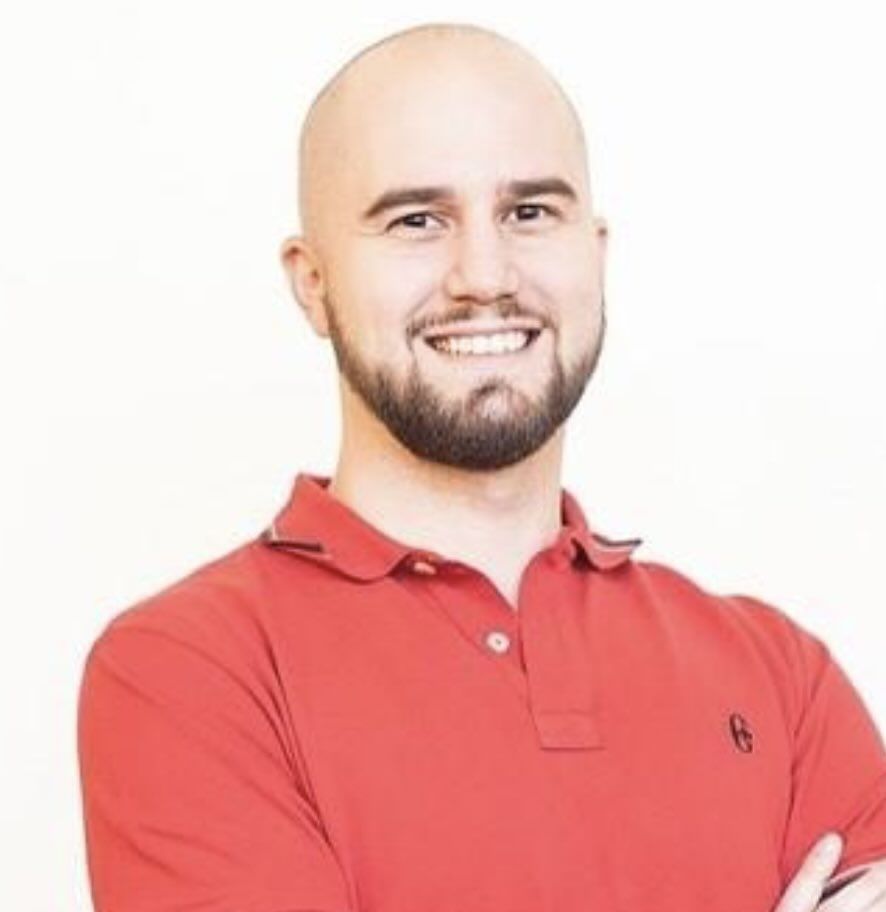
| Mr Francesco Carnielli is Technical Director at Ignitia, where he leads technology strategy and innovation to deliver hyper-local weather forecasting for smallholder farmers in emerging markets. Prior to Ignitia, Francesco was a founding employee at Everli - a leading online grocery marketplace - where he helped scale the company’s engineering teams and platform through multiple growth stages from early startup to Series D, operating in over 135 cities across Europe.
Francesco holds a Bachelor’s degree in Computer Science from the Università degli Studi di Verona and is passionate about building impactful, scalable solutions that bridge technology and sustainability.
|
| Dr Shamima Ferdousi Sifa, Assistance Professor and Climate Resilience Expert, University of Dhaka
| Shamima Ferdousi Sifa is an Assistant Professor in the Department of Disaster Science and Climate Resilience at the University of Dhaka. She specializes in climate change impacts, disaster risk reduction, hazard assessment, and early warning systems. Her academic journey began at the University of Dhaka, where she earned both her Bachelor's and Master's degrees in Disaster Science and Management. Over the years, she has led and contributed to numerous national and international research projects focusing on landslides, floods, soil salinity, and urban heat islands using GIS, remote sensing, and statistical modeling.
She has a strong publication record and has presented her research at prestigious international platforms, including the AGU Fall Meeting. In addition to her research, she plays a vital role in academic coordination, curriculum development, and training programs related to disaster resilience. She is also actively involved in professional networks promoting climate and health adaptation, gender equality, and community resilience.
|
Md Asif Rafsan, DRR and EWS Expert
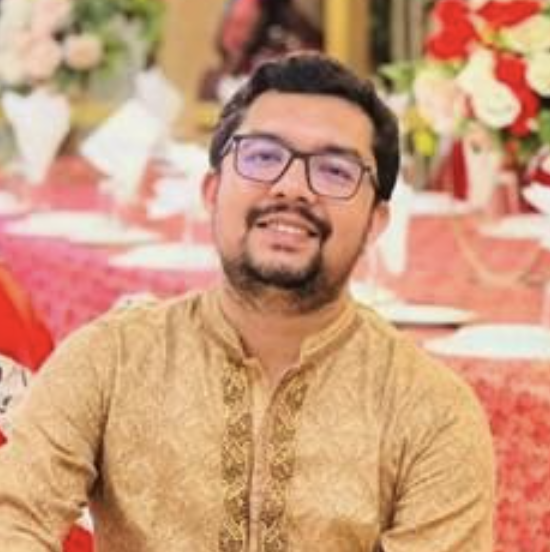
| Md Asif Rafsan is a disaster risk reduction and climate resilience professional with over six years of experience in anticipatory action, early warning systems, and climate change adaptation. He holds both Bachelor and Master’s degrees in Disaster Science and Management from the University of Dhaka. As a Senior Program Officer at IFRC Bangladesh, he led the development of the national roadmap for the “Early Warnings for All” initiative, working closely with government ministries and technical partners.
Asif has worked with leading organizations including BRAC, UNDP, ADPC, and Oxfam, contributing to policy advocacy, capacity building, and field-based research. His expertise includes GIS-based risk mapping, vulnerability assessments, python and stakeholder coordination. He has authored multiple peer-reviewed publications on disaster impacts, migration, and loss-damage assessment. Known for his strong analytical, facilitation, and communication skills, Asif is committed to advancing inclusive, evidence-driven solutions in disaster risk governance and climate resilience in Bangladesh and beyond.
|
| Mr Tonoy Mahmud, Geospatial Expert, University of Dhaka

| Tonoy Mahmud is a disaster science researcher with academic roots in the University of Dhaka, holding both BSc and MSc degrees in Disaster Science and Management. With a strong interest in geospatial technologies, climate risk, and hazard modeling, he has worked extensively in both academic and applied research. His professional journey includes roles as a Research Assistant in diverse projects on nuclear site risk assessment, landslide hazard mapping, and hydrometeorological risk analysis for vulnerable communities, as well as a Research Fellow at Oxfam Bangladesh focusing on drought dynamics.
Tonoy has co-authored multiple peer-reviewed publications in remote sensing, landslide susceptibility, drought analysis, and climate vulnerability. He brings strong expertise in GIS, remote sensing, and statistical modeling using Python, R, and Google Earth Engine. Beyond research, he is an active Wikipedia editor, creative photographer, and passionate cyclist, driven by a vision to integrate science and technology for building disaster-resilient futures.
|
| Mr M Maruf Alam James, Large Language Model Specialist, University of Dhaka
| M Maruf Alam James is the Assistant Director of the ICT Division at the University Grants Commission (UGC) of Bangladesh with a strong background in ICT infrastructure, James has designed and overseen network and software architecture for UGC and various universities across Bangladesh.
In addition to his contributions to tertiary education policy and digital transformation in higher education, James specializes in the application and integration of Large Language Models (LLMs) for education, research, and administrative automation. He is passionate about leveraging AI to enhance digital learning, streamline institutional workflows, and support evidence-based policy formulation.
|
| Ms Saiyeba Zaman, Community Coordinator, University of Dhaka
| Saiyeba Zaman is a dedicated disaster risk and climate resilience specialist in humanitarian programming, anticipatory action, and community-based adaptation. Currently serving at the Bangladesh Red Crescent Society (BDRCS) in partnership with the German Red Cross, she leads multi-stakeholder initiatives that strengthen local resilience, early warning systems, and climate justice—particularly for women and youth in high-risk areas.
With an academic background in Disaster Science and Climate Resilience from the University of Dhaka, Saiyeba combines technical expertise in GIS, data analysis, and participatory research with a passion for inclusive governance and gender-responsive programming. Her work spans forecast-based financing, emergency response coordination and advocacy for shock-responsive social protection. Saiyeba leverages technology from geospatial tools to community-driven early action protocols to reduce risks for vulnerable populations. She has contributed to policy dialogues, published research on cyclone shelter accessibility, and trained grassroots volunteers to build equitable, climate-resilient futures.
|
Ms Sadia Afrin Sayfa Negaban, Meteorologist, University of Dhaka
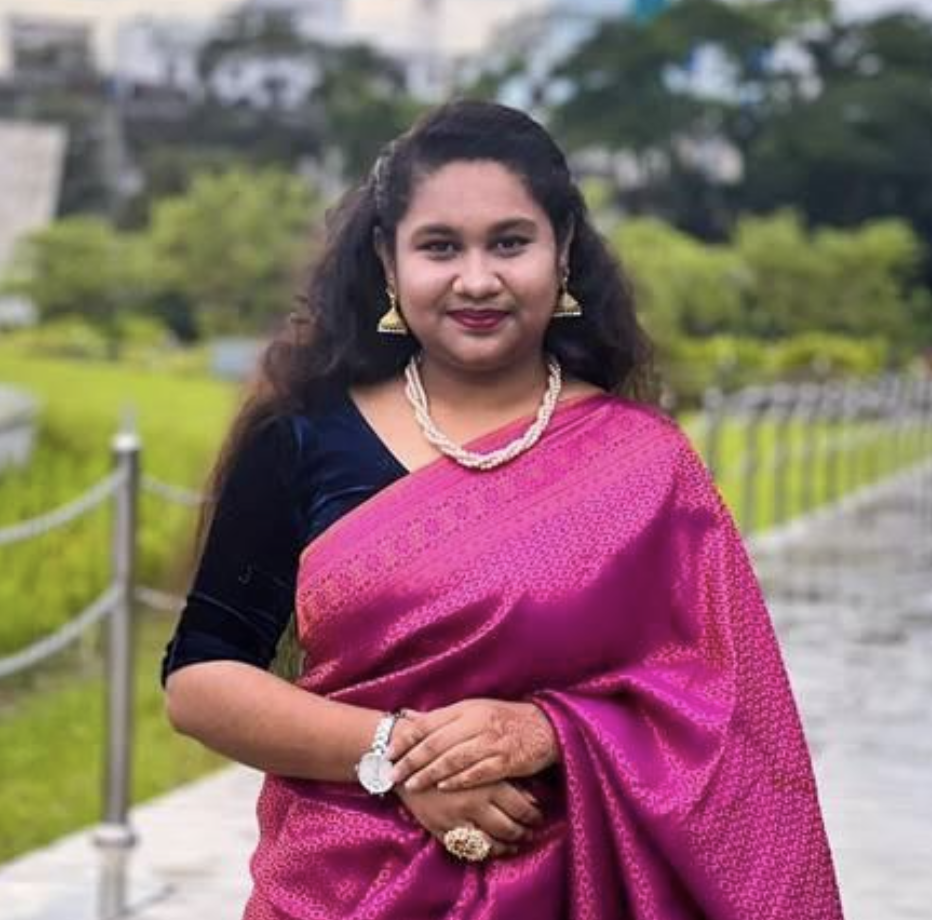
| Sadia Afrin Sayfa Negaban is a final-year student of Meteorology at the University of Dhaka. Passionate about climate change, disaster risk reduction, and sustainable development, she has been actively involved in various national and international initiatives. Her affiliations include the Avoidable Death Network as a Future Leader and Intern, Campus Ambassador at the Environment and Climate Change Hub, and participant in ICIMOD’s Geospatial Empowerment Program. She was also recognized as the 2nd runner-up in Climathon 2024 and has received multiple awards for academic and creative excellence.
Beyond academics, Sadia has organized and volunteered in numerous events promoting environmental awareness, including World Meteorological Day celebrations and international conferences. She is especially committed to empowering youth and vulnerable communities through research, advocacy, and inclusive climate action. With strong communication skills and a collaborative mindset, she continues to strive for a more resilient and equitable future.
|